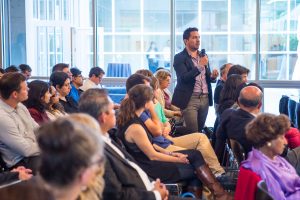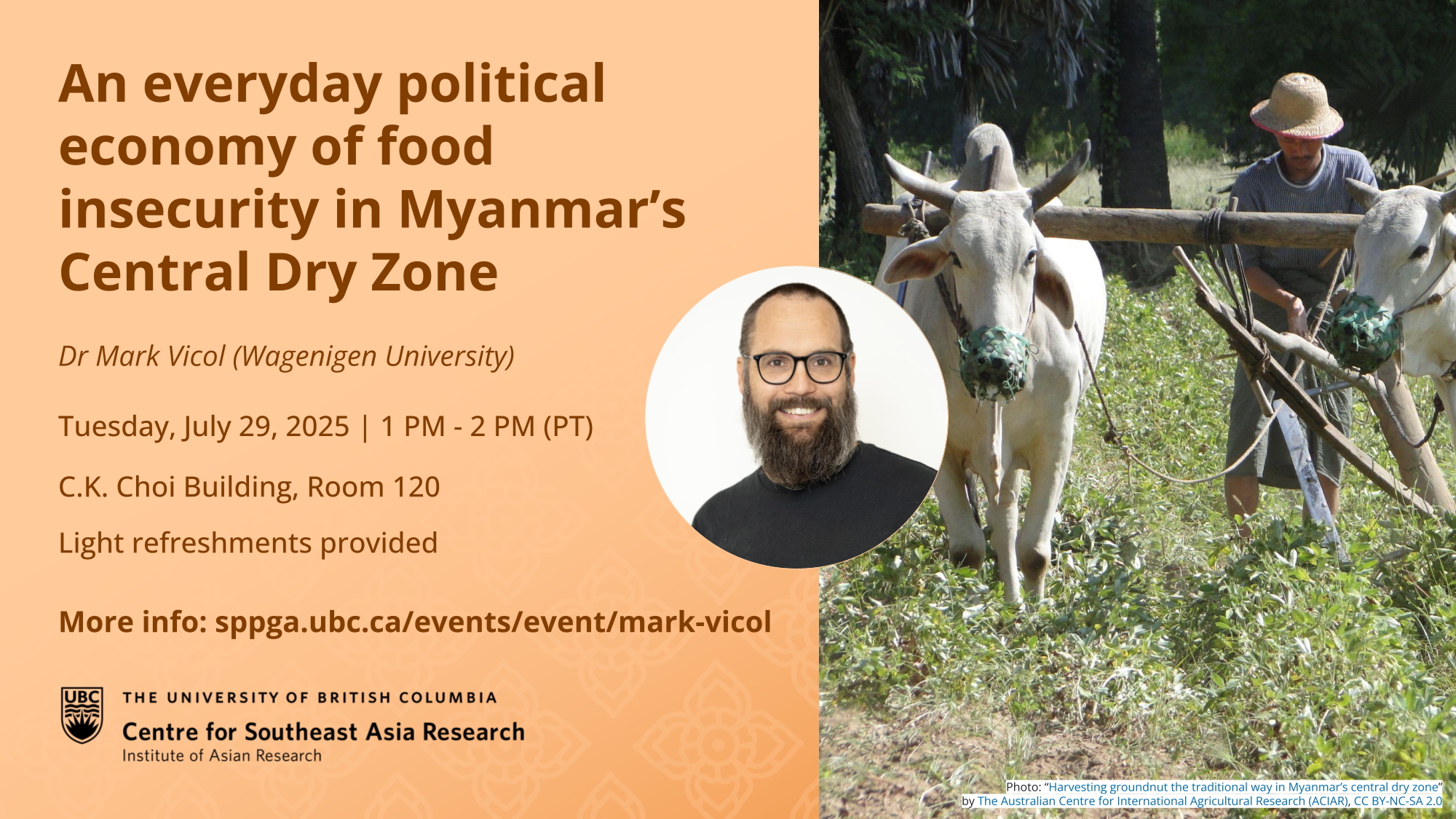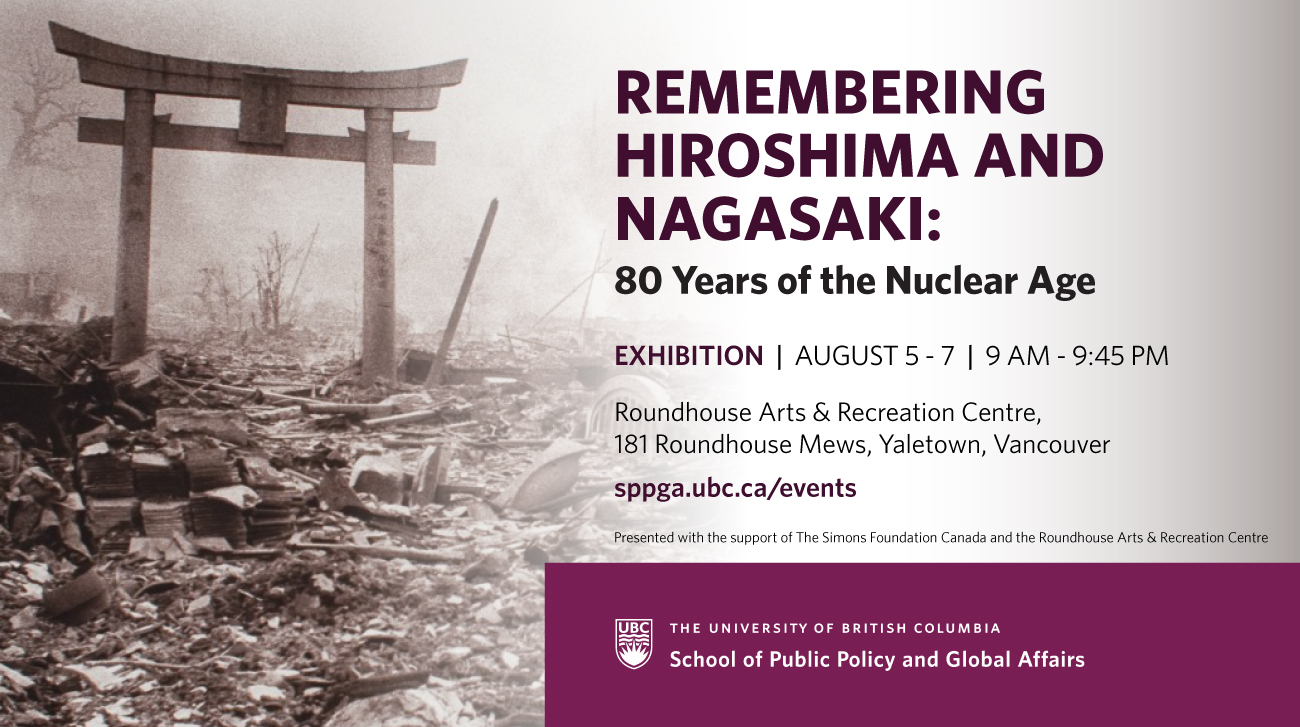

Join us for our annual Policy Salon to welcome new and returning MPPGA students and explore pressing issues of local, national and global concern. Students, Faculty, Senior Administrators, staff, community leaders, partners and employers from government, the corporate sector, and non-governmental organizations are invited to attend.
Please RSVP. Light refreshments will be served.
The Salon will open with a traditional Musqueam welcome. Policy Speakers include:
- George Hoberg, Professor, Environmental and Natural Resource Policy, Liu Institute for Global Issues, UBC
- Eva Busza, Vice-President, Research and Programs, Asia Pacific Foundation of Canada
- Paul Kershaw, Associate Professor, School of Population and Public Health, UBC
- Stephanie Chang, Professor, School of Community and Regional Planning & the Institute for Resources, Environment, and Sustainability, UBC
- Moderated by MPPGA Director Moura Quayle
Following the Salon, stay to mingle with students, UBC faculty, and policy practitioners over light refreshments to learn more about the MPPGA program and the creation of the UBC Policy School.
Salon Speaker Bios:
Professor George Hoberg specializes in environmental and natural resource policy and governance. He received a BS from UC Berkeley, and his PhD in political science from MIT. Before joining the Liu Institute, Dr. Hoberg taught public policy and American politics in the Department of Political Science for 13 years, and forest and energy policy in the Faculty of Forestry from 2001 to 2016. His research interests include environmental policy, energy policy, forest policy, and more generally the design of policies and institutions to promote sustainability. His current research focuses on the clean energy transformation. He is writing a book on the resistance to oil sands pipelines and the challenges and opportunities of the clean energy transformation.
Dr. Eva Busza is Vice-President, Research and Programs, at the Asia Pacific Foundation of Canada. Prior to joining the foundation, she was Director of Policy and Strategic Planning for UN Secretary-General Ban Ki-moon. Previous appointments also include Team Leader for Asia Pacific in the UN’s Development Programme’s Bureau for Crisis Prevention and Recovery and Senior Advisor at the National Democratic Institute for International Affairs. Ms. Busza holds a Ph.D. from Stanford University and a Master’s degree from UBC.
Associate Professor Paul Kershaw is a farmer morning and night. By day, he is an academic, public speaker, media contributor and volunteer. At UBC, he is a leading scholar of public policy, and a faculty member in the Human Early Learning Partnership. In the Faculty of Medicine, he focuses on the major policy levers that influence the social determinants of health, with a particular interest in policy that shapes these determinants for younger generations. Kershaw founded the Generation Squeeze knowledge mobilization campaign, co-hosted at UBC and the non-profit Association for Generational Equity. The campaign is building a powerful organization to speak up for younger Canada in the market place and the world of politics, and is intended to become the largest community engagement initiative ever launched from a Canadian university.
Professor Stephanie E. Chang joined UBC in January 2004 and has a joint appointment in the School of Community and Regional Planning (SCARP) and the Institute for Resources, Environment, and Sustainability (IRES). She held a Canada Research Chair (Tier 2) in Disaster Management and Urban Sustainability from 2004 to 2013. Much of Dr. Chang’s work aims to bridge the gap between engineering, natural sciences, and social sciences in addressing the complex issues of natural disasters. Dr. Chang is particularly interested in issues of disaster recovery and resilience, urban infrastructure systems, and cities of the Pacific Rim.
Professor Moura Quayle is Director of the Liu Institute for Global Issues and UBC’s Master of Public Policy and Global Affairs program. Moura’s interests lie in rethinking, refining and rebuilding collaborative spaces at the intersections of academia, government, business and civil society. Her recent focus has been the Sauder d.studio, a research and teaching studio that helps students and organizations learn to use design processes and tools to co-create innovative solutions to complex problems.
For further information, please contact lindsay.marsh@ubc.ca

